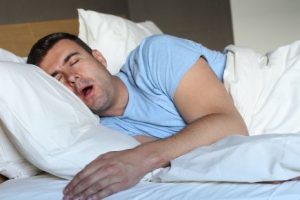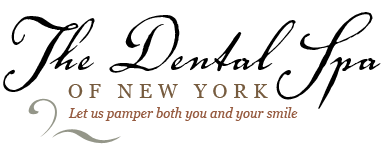 Drooling at night might seem like a minor problem, but since you spend about 1/3 of your life sleeping, it can really impact your life. It’s also far more common than you might expect. Many people assume that drooling in adulthood is rare, but that simply isn’t true. In addition, although many people are embarrassed to bring up the problem to their dentist in Park Slope, rest assured that there’s nothing to feel ashamed of! There are many potential causes of nighttime drooling, some of which you might expect and others that may be a surprise. Keep reading to learn more!
Drooling at night might seem like a minor problem, but since you spend about 1/3 of your life sleeping, it can really impact your life. It’s also far more common than you might expect. Many people assume that drooling in adulthood is rare, but that simply isn’t true. In addition, although many people are embarrassed to bring up the problem to their dentist in Park Slope, rest assured that there’s nothing to feel ashamed of! There are many potential causes of nighttime drooling, some of which you might expect and others that may be a surprise. Keep reading to learn more!
Why Does Nighttime Drooling Occur?
Any type of drooling issue fundamentally comes down to a lack of control over the muscles in the mouth and throat. This is why babies drool – they usually lack control of these muscles until they’re about 18-24 months old.
At night, something similar happens in adults because everything is relaxed and you don’t have the muscle control that you do during the day.
In addition, you don’t swallow at night as often as you do in the daytime, so saliva tends to accumulate. When you combine that with the effects of gravity, the result is drooling.
There are also several other causes of drooling that are connected to overall health:
- Medications – Some medications will cause either an increase in saliva production or a lack of muscle control, either of which can contribute to drooling.
- Allergies and Sinus Conditions – If you have allergies, upper respiratory or sinus problems, chances are that both your breathing and swallowing will be affected. When you can’t breathe through your nose your mouth stays open, which allows saliva to escape.
- Medical Conditions – If someone has a history of strokes, brain injuries, myasthenia gravis or Bell’s palsy, they have an increased likelihood of drooling.
- Diet – Having GERD or eating a diet high in acidic foods often causes excess saliva production.
- Pregnancy – Pregnant women often experience an increase in drooling.
What Are the Effects of Drooling?
In most cases, nighttime drooling is more annoying than anything else. But since it happens each and every night, it can become a serious nuisance! In addition, chapped skin, dehydration, and unpleasant odor are common problems that people encounter when they regularly drool at night.
The good news is that there are some easy and effective treatments available from a Park Slope dentist, but that topic will be addressed in another blog!
About the Author
Dr. Frank J. Sapienza is a general and cosmetic dentist who has helped many of his patients first pinpoint the cause of their nighttime drooling and then successfully treat those causes. His goal is to help his patients feel great about every aspect of their oral health, which includes issues with drooling. If you have any questions, he can be contacted via his website or at 718-965-6298.

